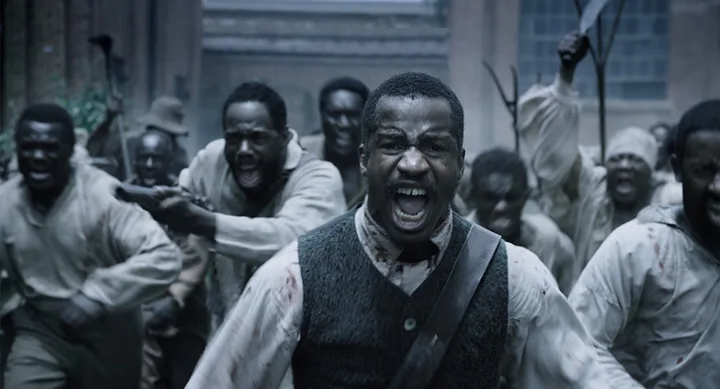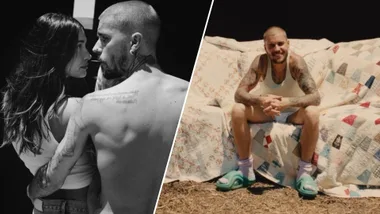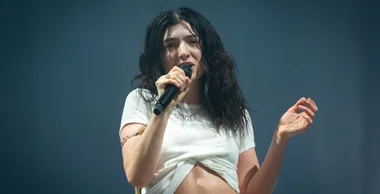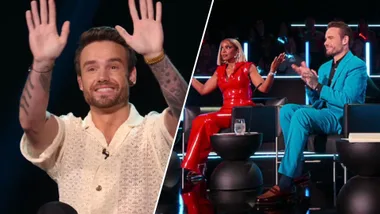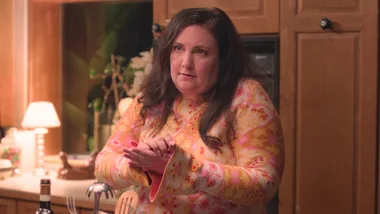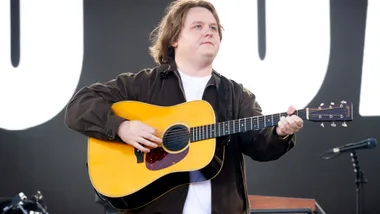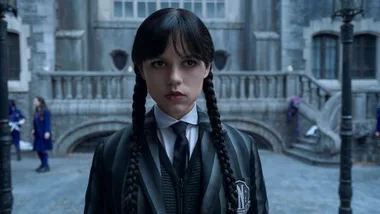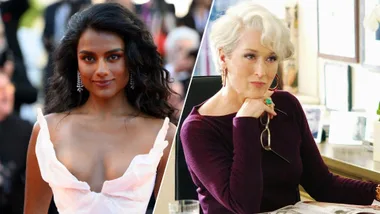This year’s Awards Season chatter has been seriously lacking in anything resembling a frontrunner. Last year everyone knew that Leonardo DiCaprio would finally win his Oscar, and most people hoped (and were rewarded in spades) when Spotlight rode its wave of critical and commercial acclaim to a Best Picture Oscar in March.
But this year has been a strange, murky one for cinema, with some buzzy movies failing to live up to the hype, and no sleeper hits from the northern hemisphere summer to speak of.
That is, excepting Birth of a Nation. The film about a slave rebellion in pre-civil war era America debuted at the Sundance Film Festival earlier this year and was purchased by Fox Searchlight for a record-breaking, splashy US$17.5 million after an all-night bidding war that included executives from Netflix and The Weinstein Company.
Back in January at the Sundance Film Festival, Birth of a Nation had all the makings of an Oscar frontrunner. Loosely based on the true story of Nat Turner, a slave who spearheaded a slave rebellion in Virginia in 1831. Directed, co-written, produced and staring Nate Parker alongside Armie Hammer and Gabrielle Union, the film deals with hot-topic talking points including race and sexual assault (a key moment in the film involves a brutal rape of Union’s character). The film just screened at the Toronto Film Festival, where it received a standing ovation.
But, since mid-August, the film has also been mired in controversy, with the resurfacing of a 17 year old rape allegation of Parker and his co-writer Jean McGianni Celestin when the pair were students at Penn State in 1999.
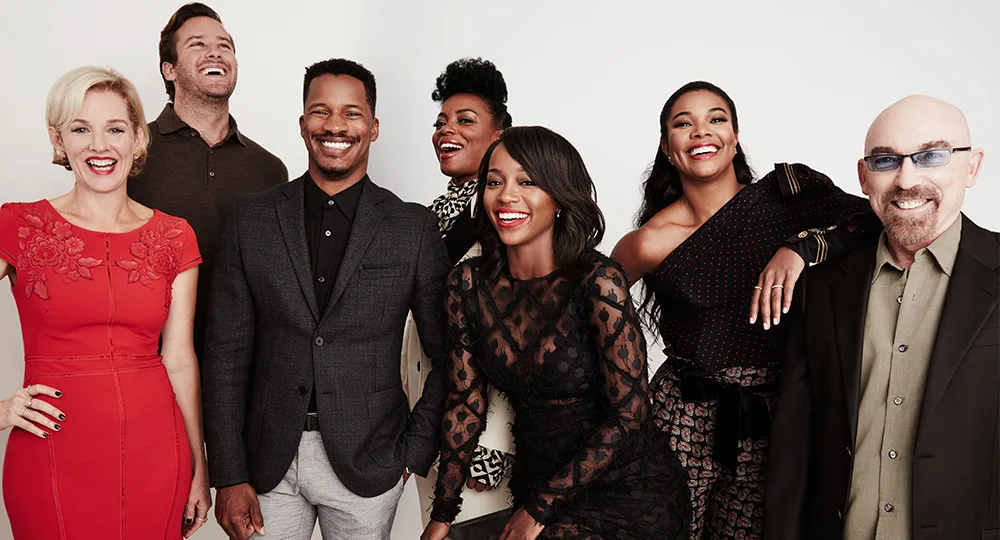
The facts of the case, briefly, are thus: Jane Doe, 18, alleged that she passed out drunk in Parker’s student flat, waking up to find Parker having sex with her, and later, waking again to find Celestin’s “penis in [her] mouth.” The case went to trial in 2001 and Parker was ultimately acquitted, although Celestin was convicted, which was later overturned after he argued successfully that his defence had been inadequate.
The allegation is a matter of public record. It appears on Parker’s Wikipedia page, and has been discussed by the actor/director previously in the media. The director has always maintained his innocence, in the same way that Jane Doe has always insisted that her version of the night’s events – that she didn’t give consent to the sexual encounter – was the true one. Twice in the aftermath of the court case she attempted to commit suicide. She later dropped out of university, and in 2012 committed suicide overdosed on sleeping pills, her brother alleged in an interview with Variety.
“The trial was pretty tough for her,” Jane Doe’s brother told Variety. “She became detached from reality… The progression was very quick and she took her life.”
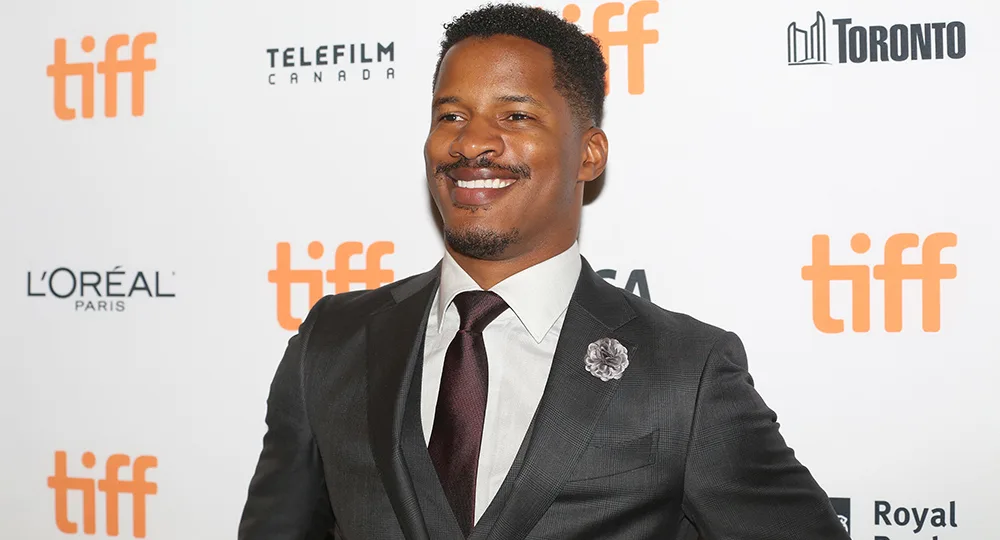
After Jane Doe’s brother spoke to Variety, Parker responded with the following Facebook post:
“I cannot – nor do I want to ignore the pain she endured during and following our trial. While I maintain my innocence that the encounter was unambiguously consensual, there are things more important the law… I look back on that time, my indignant attitude and my heartfelt mission to prove my innocent with eyes that are more wise with time. I see now that I may not have shown enough empathy for the seriousness of the situation I put myself and others in.”
Almost simultaneously, Birth of a Nation’s star Gabrielle Union – who herself is the victim of rape – wrote a passionate op-ed for the Los Angeles Times, in which she revealed she had read all 700 pages of Parker and Celestin’s trial transcript, and she was “in a state of stomach-churning confusion” about how to feel.
“On that night, 17 years ago, did Nate have his date’s consent? It’s very possible he thought he did. Yet by his own admission he did not have verbal affirmation; and even if she never said ‘no,’, silence certainly doesn’t equal ‘yes’. Although it’s often difficult to read and understand body language, the fact that some individuals interpret the absence of a ‘no’ as a ‘yes’ is problematic at least, criminal at worst. That’s why education on this issue is so vital.”
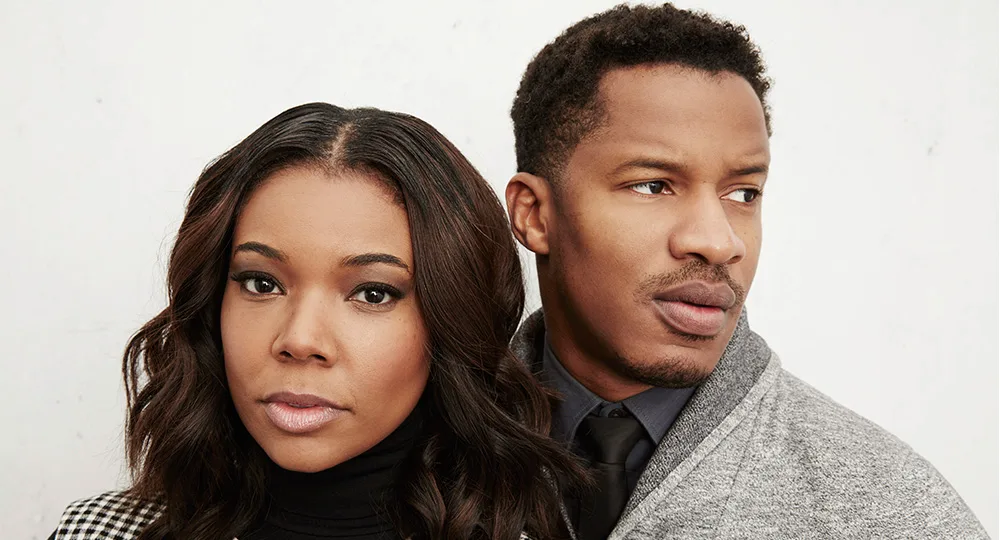
As Vox discussed late last month, and as referenced in Union’s op-ed, the vocabulary, definition and boundaries by which we conceive of rape have shifted significantly in the 15 years since the trial. In particular, discussion around rape culture in the American collegiate landscape has taken centre stage this year, with high profile cases such as the Stanford rapist dominating the news cycle.
Since releasing the statement on his Facebook page, Parker has distanced himself from the allegations. While appearing at the Toronto Film Festival to fete the film he directed, produced, co-wrote and starred in, Parker would not be drawn on questions about the trial.
“I’ve addressed [the allegation], and I’m sure in future forms I’ll address it more,” Parker said at a press conference. Later he responded to another question by saying “I’ve addressed this a few times. This [press conference] is a forum for the film and for the other people sitting on this stage. I do not own it. It is not mine. So I don’t want to hijack this with my personal life.”
Union however, who appeared at the press conference beside Parker, told the assembled media that her op-ed had received a “tremendous” response.
“Five per cent of me feels like I threw Nate under the bus. Five per cent of me feels like I am a rape apologist.”
More important for the actress was continuing to be “a voice for people who are voiceless and powerless” and using her celebrity to speak out about sexual violence.
“You are not broken, you are not alone, you have a tremendous amount of support whether you want to speak out or not. You are valid, you are loved, and you are worthwhile… I’ll keep saying it and I will continue saying it after this movie.”
People are already boycotting the movie and the American Film Institute has “postponed” (read: cancelled) a screening of the movie after receiving an influx of complaints.
“For a lot of different reasons this film’s going to be difficult to see for a lot of people, and I get it,” Union told E! at the Toronto Film Festival. “There are movies I sit out, so I understand I’d be a hypocrite to say I don’t.”
The film opens in America next month and in Australia in February next year.
